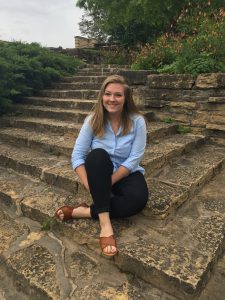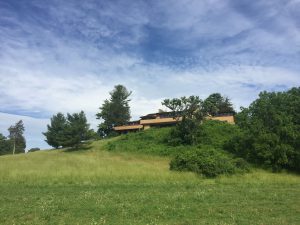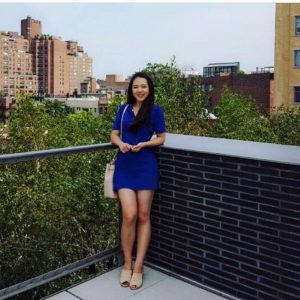This is the next in a series of posts by recipients of the Career Services Summer Funding Grant. We’ve asked funding recipients to reflect on their summer experiences and talk about the industries in which they’ve been spending their summer. You can read the entire series here.
This entry is by Constance Miller, COL ’18
In his Poetics, Aristotle argued that a true tragedy was characterized by both pity and fear. Pity was best evoked by a change of fortunes from good to bad, while the most fear was generated from the story of a man like ourselves—neither wholly good nor wholly bad. As such, this tragic hero would evoke fellow-feeling in the members of the audience, who would identify with the mixed virtues and vices of the hero. Finally, a tragic hero was this sort of man of indeterminate morality whose fortune spoiled, “not through vice or depravity, but by some error of judgment.” This past summer, I watched this pattern play out time and again in the lives of countless deeply complicated men, all found guilty of capital murder.
I spent my summer interning with the Atlantic Center for Capital Representation (ACCR). ACCR is a non-profit that provides legal advocacy, consultation, and mitigation services in death penalty and juvenile life without parole cases. My projects came in ebbs and flows. Some days I summarized trial transcripts, always aiming to reduce the page count by 96%. These summaries would be used by legal teams preparing for an appeal, giving them a quick idea of how the original sentencing phase had unfolded while they familiarized themselves with the case. As I created these summaries, I was to make a note of anything that looked “sketchy.” “Sketchy” was a broad category, ranging from procedural irregularities to prejudicial and irrelevant testimony to questions regarding the fact patterns of the crimes themselves. Other days, I might find myself combing through various academic studies on the reliability of sentencing criteria in certain states. The compilations I submitted would be used by the center to write op-eds or for further outreach and advocacy.
Then there were the “mitigation theme” days. Mitigation is essentially a legal catch-all for circumstances, character, and experience which might reduce the moral blameworthiness of a defendant. On these days, I was tasked with reviewing social histories and looking for anything that might evoke the pity and fellow-feeling of the jury. I would compile facts and episodes by theme, hoping that the lawyers would be able to show each story for the sympathetic mix of good and bad that it was.
On a few occasions, I would scour the internet for a specific name or story that embodied the tragedy of our justice system. If I found anything promising, I would submit the name and story for use in a future op-ed, provided we obtained the consent of the individual and their attorneys. It was not difficult to find men and women who had been affected. Everywhere I looked a Brutus sat on death row while Cassius walked free. Countless Raskolnikovs wrestled with guilt and mental illness, aching for absolution but confined to solitary. In one story I heard the cries of Masada, as fathers killed their wives and children, believing they saved them from a worse fate. Over every story lay the pall of poverty, domestic abuse, neighborhood violence, and mental illness.
Perhaps the most unsettling aspect of sentencing was its dependence on the skill of a lawyer in producing an effective tragedy. So much depended on whether the defendant could be depicted as a tragic figure descended of the House of Atreus. The drama needed to be a showstopper. The defendant needed to be Oedipus.
My experience this summer was not glamorous. It was enraging and doleful, convicting and lonely. It was dimly lit computer screens, the cheapest coffee on the menu, and a silent aching. The ache came at times for the families of the victims, whose worlds would never be the same. It came at times for inmates and defendants, whose lives had been defined forever by the worst thing they’d ever done. But more often than not, the ache came for a country and a justice system where these people’s stories were possible. From the lifelong individual hardships faced by the defendants to the financial difficulty of defending indigent clients at all, the ache of injustice stayed with me all summer long.
I want to thank Career Services and their donors for funding this opportunity. The state of our justice system is such that defending indigent clients in death penalty cases is something of a luxury. There is precious little funding even for the most experienced defense lawyers in the field, and none at all for an undergraduate looking to gain early training and experience. My hope is to pursue the intersection of humanity and justice to their vanishing point, whatever that may be, and eventually, to law school. I also want to thank the Atlantic Center for Capital Representation for being willing to stand with me as I dipped my toe into the waters of the waves they have fought against daily. You do amazing work, and I am honored to have been a very small part of it.





